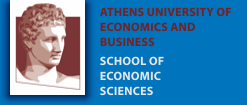| Authors |
Koundouri, P. and Papadaki, L. |
| Title |
Oceans of Tomorrow: The Sustainability Transition |
| Abstract |
This chapter summarizes the concluding remarks and recommendations based on the analysis presented in the previous chapters. The chapters of this book capture a wide spectrum of sustainable (e.g. economic, societal and environmental) challenges related to the Seas presenting critical outcomes of marine and maritime research. The analysis in chapters 2 to 5 showed that MUOPs can potentially benefit from each other in terms of infrastructure, maintenance etc. It is clear that the main sources of uncertainty about the viability of the projects are coming from the lack of precise knowledge on the operational conditions of the technology. In this context, MERMAID's assessment tool provided researchers with an intuitive way to evaluate multiple scenarios that would be hard and time-consuming to assess manually. Chapter 6 presents novel IT applications, which can facilitate producers to engage in the technology race and chapter 7 sheds light to the source-to-sea concept, which bridges the chasm for a better integration, cooperation and coordination of activities from the rural area until the ocean aiming at a harmonized and sustainable land-sea are. Chapter 8 focuses on Marine research supporting that CES valuation can become an extremely useful tool that can bring to the surface the benefits derived from the cultural aspects of MPAs, while chapter 9 depicts the key challenges of plastic marine litter. From the analysis carried out in Chapters 10 and 11, it is clear that the maritime transport sector including ports not only are driving up global temperature but are essential part of the global economies. Ports role will be crucial in the law enforcement through reward schemes and priority entrance to ships complying with International and European regulation. Chapter 12 presents the circular economy approach, which can solve most of the challenges analysed in the previous chapters, and the synergies with the Smart Specialisation Strategies. All chapters underline the need for explicit targets and financial plans to be designed aiming at the implementation of ambitious climate and ocean related targets. |
| Creation Date |
2020-05-30 |
| Keywords |
socio-economic methodology, participatory approaches, financial analysis, web-based tool, marine, maritime, sustainable development, marine litter, policy recommendations, sustainable oceans |
| File |
Oceans.of.Tomorrow.The.Sustainability.Transition.pdf (310689 bytes) |
| File-Function |
First version |
|
Copyright © 2009 [D.I.E.S.S. A.U.E.B.]. All rights reserved.
|

